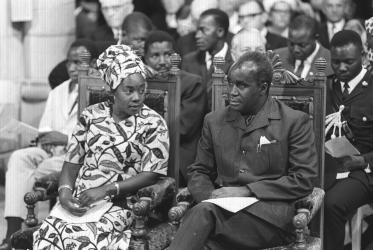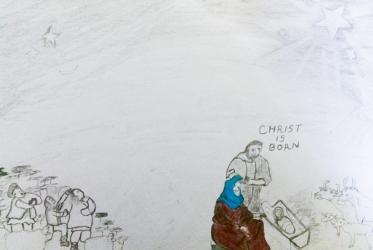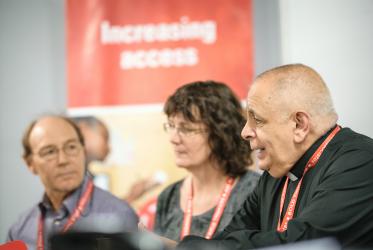Displaying 1 - 20 of 26
WCC to ring with children’s voices across the world
16 November 2018
“Called to be a good neighbor”
14 October 2017
Forum strengthens ecumenical commitment to diakonia
12 October 2017
Honest talk blossoms between youth, theologians in Cote d’Ivoire
14 September 2016
Person with disability shares reflection on AIDS conference
10 December 2015
Pilgrimage of justice and peace gives vision for WCC programmes
22 November 2014

















